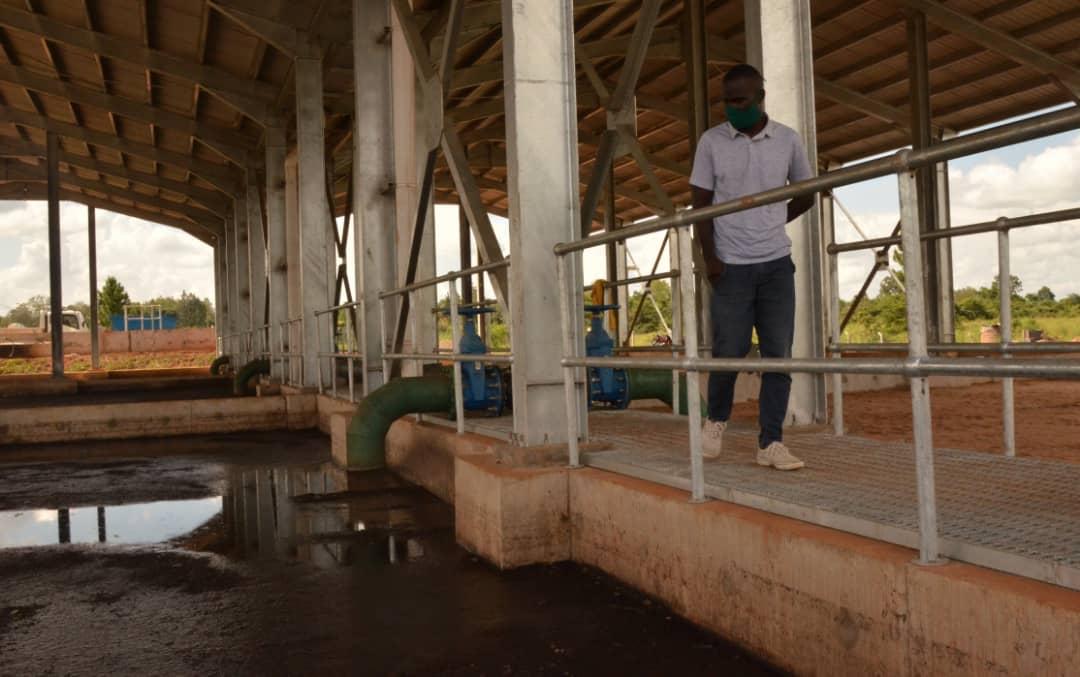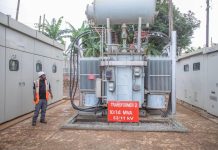Africa-Press – Uganda. “The organic process takes approximately six months before the decomposed sludge is ready for consumption in the form of compost manure. The manure is either applied to food crops, trees, or flowers, and grass used as decors,” Ivan Tekakwo, NWSC regional spokesperson
The sale of manure made from faecal sludge is booming in Gulu City, with residents rushing to buy the crop booster currently being managed by the National Water and Sewerage Corporation (NWSC).When Daily Monitor visited the site in Pece-lokung Village, Gulu East Division, last week, a truckload of manure was selling between Shs40,000 and Shs50,000, while a pack of 100kg was sold at Shs5,000.
Ms Proscovia Nyamungu, the acting manager for NWSC Gulu branch, said the demand for the manure is increasing by the day and that they had run out of stock.“We have a ready market and the farmers are coming for more yet it is finished. Whereas in other districts they fear to buy the manure, it is selling like hot cake here,” Ms Nyamungu observed.
She explained that the facility comprises eight beds of manure, each with capacity to load eight trucks.Trucks come from as far as Kitgum District to dump sludge at the facility and frequency is higher when schools are operational.Mr Ivan Tekakwo, the NWSC regional spokesperson, said each cesspool truck that dumps sludge at the treatment plant is charged Shs15,000.
“The organic process takes approximately six months before the decomposed sludge is ready for consumption in the form of compost manure. The manure is either applied to food crops, trees, or flowers, and grass used as decors,” he said.Mr Tekakwo noted that the manure is tested to ensure there are no heavy metals before it is cleared for sale.
Testing for metals“Sales started a month ago but before we sell to buyers, we have laboratories where we test whether it meets the quality parameters and to ensure there are no heavy metals present in it.”
Heavy metals such as copper, mercury, zinc, phosphorus and nickel are normally found in sewage. The metals come from a number of sources; faeces, pharmaceutical products, cosmetics, washing and cleaning chemicals, paints and other surface coatings. The faecal treatment plant in Gulu, with capacity to treat 90 cubic litres of sludge per day, is the third of its kind in the country, after that of Kampala and Arua towns.It was built by Fichtner, an engineering and transportation firm under the Integrated Programme financed by World Bank and KFW.
The sewage treatment plant is part of the Shs42 billion Gulu Water and Sanitation Project, which includes upgrading and expanding Oyitino Dam, and expanding the sewage lagoon in Pece-Cubu Village, Gulu East Division in Gulu City.Under the project, water will be drawn from River Nile, treated on site, and pumped up to Gulu City via a 72-km pipe system. The water will also serve six other towns of Karuma, Kamdini, Minakulu, Bobi, Palenga, and Koro-abili.






